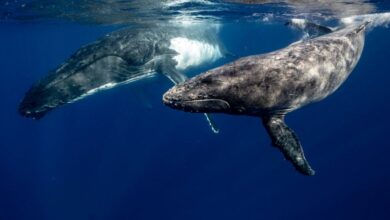What Are the Rules for Whale Watching in Canada
Whale watching in Canada is an exhilarating experience that attracts tourists from all over the world. With its stunning coastlines and diverse marine life, Canada offers some of the best locations for observing these magnificent creatures in their natural habitat. However, as enchanting as this activity is, it comes with responsibilities. Understanding the rules for whale watching is crucial not only for the safety of the whales but also for the preservation of their environment.
Understanding Distances
One of the key rules for whale watching in Canada is maintaining a safe distance from the whales. The federal government has established specific guidelines that vary depending on the species of whale. For instance, vessels must stay at least 100 meters away from humpback whales and 200 meters from orcas. This distance is crucial to minimize stress on the animals and ensure their natural behavior is not disrupted. Observers should also be aware that getting too close can lead to fines and penalties, as these regulations are strictly enforced.
Responsible Boating Practices
Boat operators play a vital role in responsible whale watching. It is essential to approach whales slowly and avoid sudden movements that could startle them. Operators should also refrain from cutting across the paths of feeding or migrating whales. Instead, they should position their boats in a manner that allows for a safe and respectful observation of the animals. If a whale surfaces near a boat, it is important to remain still and allow the animal to decide the distance it feels comfortable with.
Education and Awareness
Educational programs are a significant aspect of whale watching in Canada. Many tour operators provide informative briefings before heading out to sea, educating participants about the species they are likely to encounter, their behaviors, and the threats they face. This knowledge fosters a deeper appreciation for marine life and encourages responsible attitudes toward conservation. Tourists should take advantage of these educational opportunities to enrich their experience and understand the importance of protecting whale habitats.
Respecting Marine Life
In addition to the rules governing distance and boat operation, whale watchers must also respect the broader marine environment. This includes avoiding littering in the ocean, being mindful of noise pollution, and not feeding the animals. Human intervention can alter the natural behaviors of whales and other marine species, leading to detrimental effects on their populations. Tourists should be encouraged to leave nothing but footprints and take nothing but memories when they return from their excursions.
Monitoring and Reporting
Another essential aspect of responsible whale watching is monitoring and reporting any disturbances or unusual behaviors observed during outings. If a whale appears distressed or is exhibiting signs of entanglement, it is crucial to report this to authorities like the Canadian Wildlife Service or local marine mammal rescue organizations. By doing so, individuals contribute to the conservation efforts and help ensure the safety of marine wildlife.
Best Practices for Tourists
For tourists, participating in whale watching tours is an opportunity to witness the beauty of nature. However, it comes with a set of responsibilities. Always choose operators that adhere to the guidelines established by the Department of Fisheries and Oceans Canada (DFO). Look for companies that are certified and demonstrate a commitment to sustainable practices. Also, be prepared for the trip by wearing appropriate clothing and being respectful of fellow passengers and crew members.
Taking Care of Our Oceans
Whale watching is more than just an exciting adventure; it is a chance to engage with the natural world and appreciate its wonders. By adhering to the rules and guidelines set forth by Canadian authorities, both operators and tourists can play a significant role in preserving marine ecosystems for future generations. The majestic whales of Canada deserve our respect and protection, and responsible whale watching is a step toward ensuring their continued existence.
Making a Positive Impact
Ultimately, whale watching in Canada is about creating lasting memories while fostering a culture of conservation. By following the established rules and advocating for marine protection, we can ensure that these awe-inspiring creatures thrive in their natural habitats. As we marvel at their beauty, let us also commit to safeguarding the oceans that sustain them. Through collective efforts and mindful practices, we can enjoy the thrill of whale watching while contributing to the health of our planet.







